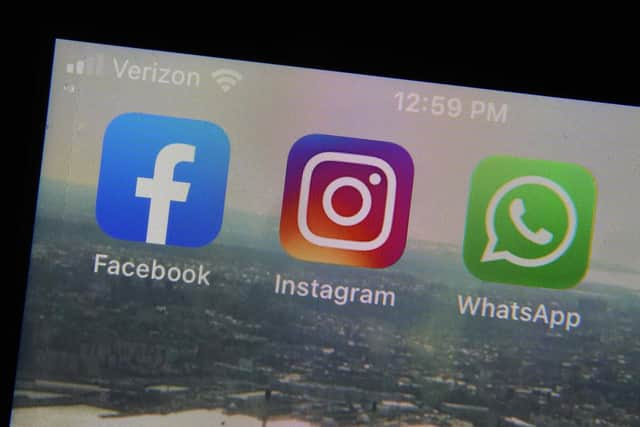Facebook, WhatsApp and Instagram's outage showed the cost of letting Big Tech monopolies rule the online landscape
The six hour-long outage saw Facebook chief executive and Silicon Valley arch-villain Mark Zuckerberg reportedly lose an estimated $6.6 billion (£4.4bn) in personal wealth as Facebook’s stocks plunged, Silicon Valley employees were locked out of offices and WhatsApp users flocked to end-to-end encrypted messaging app, Signal.
But the cost to those reliant on Facebook to run businesses, contact loved ones and send money to relatives overseas failed to gain the same global attention.
Advertisement
Hide AdAdvertisement
Hide AdFor instance, WhatsApp’s failure to move beyond a painstakingly slow and frustrating ‘connecting’ status bar for some six hours or more had left many of those reliant on the service in the global south with little or no means of digital communication – resigned to using more expensive messaging services or those buckling under the weight of constant bandwidth issues.


The event was a reminder of both the fragile underpinnings of the internet, as Facebook’s configuration error left the web’s underlying peering protocol Border Gateway Protocol unable to find its domain information, and just how much power Facebook holds over this and our modern lives.
The company’s aggressive strategy of horizontal integration saw it gobble up Instagram when the photo-sharing social media app had reached its peak popularity in 2012, with Facebook acquiring the company for $1bn [£730m] .
Then came its purchase of WhatsApp in 2014 for an estimated $19bn [£14bn], followed by its rapid snapping up of Virtual Reality tech company, Oculus VR, that same year.
This pattern of ruthlessly taking out the competition through expensive acquisitions has stoked the suspicions of regulators, but has failed to translate into legislation limiting Facebook’s market power, with lawmakers only waking up to the damage caused by their reluctance to act once doing so seems nigh impossible.
So when Facebook, WhatsApp and Instagram go down, and we find the platforms we rely on in one way or another suddenly cease to exist, we all go down with them, swept up in the terrifying chain reaction of services grinding to a halt and feeling it twice as hard.
Comments
Want to join the conversation? Please or to comment on this article.